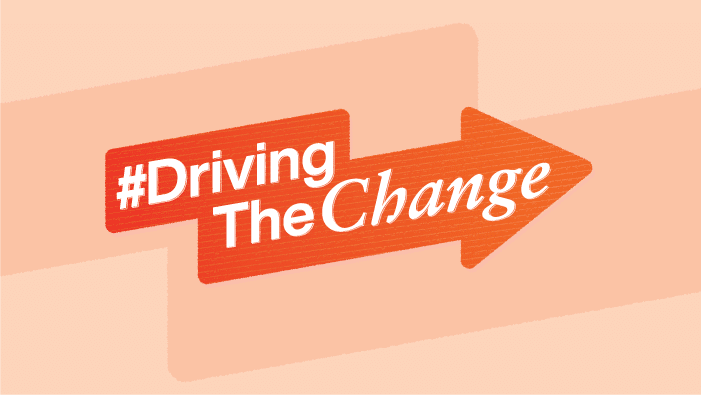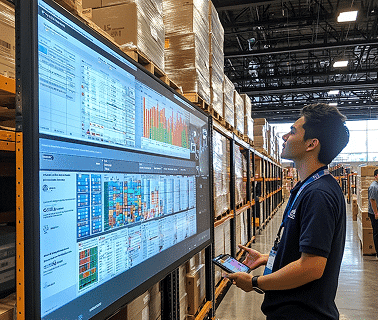Listen to this blog
ERP can have a massive impact on your business. Still, it’s not just about automating things like accounting or inventory management—it’s also about ensuring you have the correct information at the right time. But what is the ERP complete form? ERP stands for Enterprise Resource Planning.
Want to know more about the essential tools required in data science, check out our blog on important tools covered in data science.
What is Enterprise Resource Planning?
Many people ask, what is ERP? Here’s how we define ERP. Enterprise Resource Planning (ERP) is a software application that integrates all aspects of a company’s business processes to streamline them and improve efficiency. ERP software can be deployed on-premises, in the cloud, or as a hybrid solution.
Companies of all sizes use ERP solutions, but they are prevalent among large corporations operating multiple locations or complex supply chains. Many large corporations use ERP systems to manage business operations at various locations around the world.
The most common types of ERP solutions include manufacturing resource planning (MRP), customer relationship management (CRM), supply chain management (SCM), financial management (FM), and human capital management (HCM).
Have a desire to learn all the top business analytics tools? Check out our blog on the best business analytics tool for further information.
Types of ERP
There are three types of ERP software systems available:
- Cloud ERP
Cloud ERP is a type of ERP hosted on a cloud platform. Cloud ERP offers several benefits over traditional ERP systems. For one, it allows for real-time data sharing across multiple users and locations so that employees can stay connected to their company’s systems wherever they are. Cloud ERP also can store data securely in the cloud, which means that there are fewer worries about losing important information during an outage or other disaster scenario.
- On-Premise ERP
The on-premise ERP is an enterprise resource planning (ERP) software installed on a company’s servers and is accessible only by the employees of that company.
On-premise ERP systems are typically expensive, but they offer significant benefits over cloud systems, such as better security and control over your data.
- Hybrid ERP
Hybrid ERP is a combination of both on-premise and cloud-based software. Hybrid ERP allows you to choose which components are best for your business and where they should be.
Hybrid ERP is an all-inclusive solution. It can manage your entire business, including accounting, production and supply chain management, sales management, procurement, and finance. Hybrid ERP offers features like resource planning, inventory control, purchasing, and budgeting.
What does an ERP do?
ERP stands for Enterprise Resource Planning. It’s a system that manages your company’s resources and helps your business run more efficiently. An ERP system is used by companies of all sizes, from small businesses to international conglomerates.
Some of the features an ERP offers include:
- Streamline Inventory Management
Inventory management is one of the most critical functions of ERP, and it allows companies to streamline their inventory processes and ensure they are utilizing their resources effectively. This means that it helps companies track materials, products, and other supplies to ensure they stay supplied. It also allows them to ensure that they have enough of each item needed for production and distribution.
Want to know more about market analytics? Check out our blog on what is market analytics by clicking here.
- Track Customers and Employees
Another essential function of ERP is customer management, which allows companies to track customer information, such as email addresses or phone numbers, so that they can stay in contact with them. This is an essential tool because it lets businesses know who their customers are so they can better understand what type of products or services those people are interested in buying from them.
- Manage Finances
An ERP system can manage your finances, including everything from accounting to sales reporting. The ERP system will help you create budgets, track expenses and revenue streams, and analyze trends. It also allows you to generate reports that give you an overview of your business performance over time.
- Implement Workflow Processes
Workflow processes are an essential part of any ERP system. They allow you to automate repetitive tasks so that they happen automatically without being managed by a human being who would otherwise have to do those tasks manually every time they were required.
How does it work?
An ERP includes software for financials, procurement, manufacturing, and human resources management and can also be extended to include sales, marketing, and customer support.
ERP systems are built using a three-tier architecture: client-server, n-tier, or three-tier. Each tier has dedicated hardware that performs specific tasks in the software architecture.
The server tier handles all client data requests through communication protocols like HTTP/HTTPS and stores databases for data manipulation. The middleware layer provides services like logging in/out users and authentication procedures for different functions executed by users; it communicates with other servers over network protocols like TCP/IP etc.
Five components of ERP
ERP systems are made up of several components, including:
- Finance
Financials are a critical component of any organization’s success. The engine drives your business, and its performance determines your capacity for growth. As such, an ERP system for finance should be able to automate many of the tasks associated with financial management, including budgeting, forecasting, accounting, and reporting.
- HR
A human resources system is designed to allow companies to manage all aspects of their employee relationships in one place. This includes benefits administration, payroll processing and timekeeping (including vacations), hiring and onboarding new employees, performance reviews, employee training programs, and more.
- Manufacturing & Logistics
An ERP system dedicated to manufacturing and logistics is designed to help businesses optimize their production processes by providing real-time data on inventory levels and other metrics relevant to operations management at each step along the supply chain.
- Supply Chain Management (SCM)
Supply Chain Management manages the flow of goods and services in an organization. It involves planning, coordination, and execution to deliver products or services to the end customer.
- Customer Relationship Management (CRM)
Customer Relationship Management is a process that allows companies to identify and manage their customers effectively. CRM provides a systematic approach for collecting, analyzing, and utilizing information about customers to improve customer service.
But what is SAP ERP? SAP ERP (Enterprise Resource Planning) is a business application that helps companies manage their operations.
What are the benefits of Enterprise Resource Planning?
Enterprise resource planning (ERP) is a crucial tool for any organization, and it can help you save time and money, reduce risk, and improve efficiency. Here are six reasons why it’s so important:
- Better financial control
- Easier collaboration with suppliers and customers
- Improved customer service
- Reduced inventory costs
- More accurate data collection and reporting
- Better inventory management
Want to learn more about data analytics tools? Check out our blog on top essential data analytics tools for more information.
Top ERP Providers
Here are six of the most popular ERP providers:
- Microsoft Dynamics 365 for Operations
- Oracle ERP Cloud Service
- SAP Business One
- Sage 300 ERP X3
- Infor CRM OnDemand
- JD Edwards
- Infor
Want to know about the skills required to become a data analyst? Check out our blog on data analytics skills for more information.
Conclusion
To expand your knowledge in ERP, you can check out the online MBA courses available on the Online Manipal website. You can graduate with an online MBA with a specialization of your choice from Manipal University Jaipur (MUJ) or Manipal Academy of Higher Education.
Key takeaways:
- ERP software helps you save money by reducing waste and streamlining your supply chain. By tracking every step of production, from raw materials to the finished product, you can identify any bottlenecks or unnecessary steps in your process and eliminate them.
- ERP software provides real-time visibility into your inventory levels—inventories that are too low can result in lost sales. By tracking your inventory levels and adjusting accordingly, you’ll be able to optimize your supply chain for maximum efficiency.
- ERP software allows you to track every detail of production and shipping so that nothing falls through the cracks—including compliance with food safety standards or health regulations. This is especially important if you’re selling products that require special handling or storage conditions.
Prepare for your next career milestone with us












